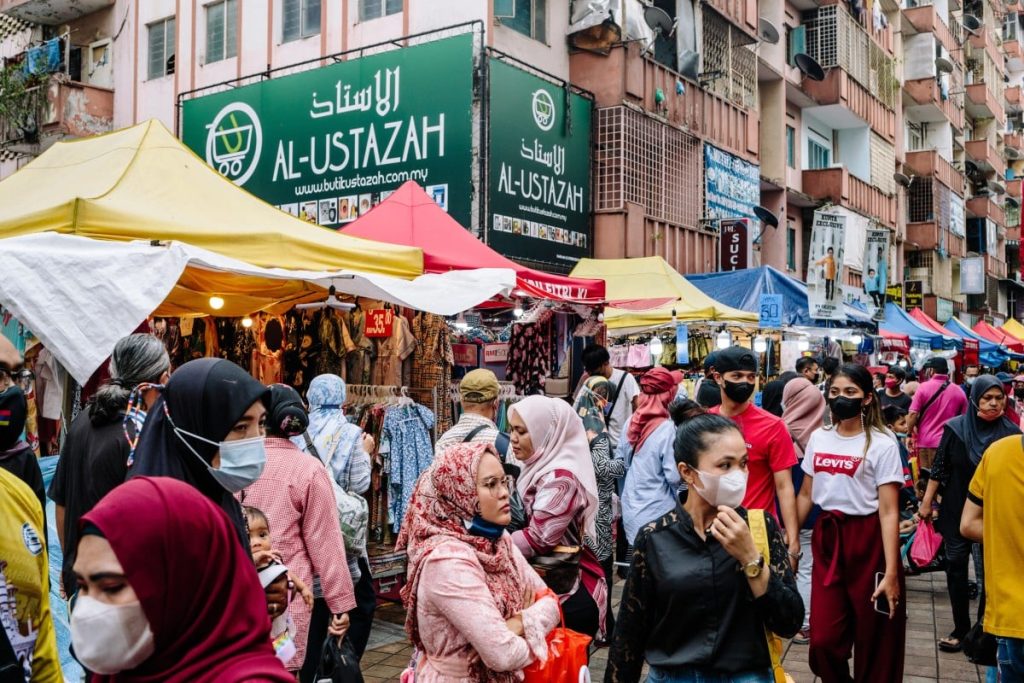
MALAYSIA’S small and medium enterprises (SMEs), the backbone of the economy, are entering the second half of 2025 (2H25) under mounting pressure from rising costs, regulatory burdens and labour shortages, even as many remain cautiously optimistic about growth prospects.
In separate statements last week, the Malaysian Industrial, Commercial and Service Employers Association (MICSEA) and the Small and Medium Enterprises Association of Malaysia (SAMENTA) highlighted the increasingly fragile position of SMEs, citing survey data and industry feedback that point to both resilience and vulnerability.
Global, Domestic Headwinds
MICSEA president YK Lai noted that the global outlook is increasingly fragile.
The IMF’s World Economic Outlook (July 2025) projects global growth at 3%, down from 3.3% in 2024 and well below the pre-pandemic average of 3.7%.
The World Bank is more cautious, forecasting 2.3%, which would be the weakest performance since 2008 outside of recessions.
Advanced economies are slowing, with the US projected at 1.4% and the European Union (EU) at 1.1%. China, while more resilient, has been revised down to 4.5%.
On the domestic front, Malaysia recorded 4.4% GDP growth in the second quarter of the year (2Q25), driven by services, manufacturing and construction, with domestic demand anchored by wage increases and lower unemployment at 3%.
However, the Federation of Malaysian Manufacturers (FMM) projects moderation to 3.5%-3.6% in 2H25, citing cost pressures, weaker export demand and fragile global recovery.
Costs, Compliances, Labour Challenges
“SMEs continue to serve as the backbone of the nation’s economy driving job creation, innovation and national growth. They are increasingly burdened by rising operational costs, stringent compliance requirements and persistent labour shortages,” Lai said.
According to the SAMENTA-Ipsos SME Outlook Survey 2025/26, higher input costs from electricity tariff revisions, raw materials, logistics and wages are squeezing margins.
The expansion of the Sales and Service Tax (SST), coupled with e-invoicing, stamp duty and other regulatory requirements, is adding significant compliance costs.
Survey data show that 69% of SMEs plan to raise prices to cope with higher costs — a move that risks eroding competitiveness and fuelling inflationary pressures.
Another 26% of SMEs ranked compliance burden among their top three business challenges.
Labour shortages remain acute, with both skilled and semi-skilled positions difficult to fill. This is hampering productivity, delaying projects and limiting growth potential.
Cautious Optimism, but Uneven Resilience
Despite these pressures, optimism persists.
The SAMENTA-Ipsos survey found that 65% of SMEs believe Malaysia’s economy is on the right track and 91% expect stable or higher revenues in the next six months.
SAMENTA national president Datuk William Ng cautioned, “SMEs are cautiously optimistic about the economy, but optimism alone will not move the needle. Seven in 10 SMEs have less than six months’ cash reserves and 40% say inflation is their biggest headache.”
“Without targetted policies to bridge financing gaps, cut regulatory overload and boost demand, we risk a K-shaped economy where larger companies and the GDP show strong growth, but our SMEs continue to struggle.”
“We are grateful for the government’s strong support for SMEs and we welcome ongoing fiscal and labour reforms. However, many SMEs are struggling to cope
with the rapid pace of changes; from tax and subsidy rationalisation to labour mandates and environmental, social and governance (ESG) compliance. Unless proportionality is applied in rolling out these reforms, we risk wiping out our SMEs and undoing years of hard-won gains,” Ng added.
“The survey findings reveal both opportunities and vulnerabilities. Slightly more than half of SMEs plan to increase investments over the next six months and 69% will adjust prices to cope with higher costs. This shows intent to grow. But the picture is uneven, with older, urban SMEs better prepared, while younger and East Coast firms remain vulnerable,” Ipsos Strategy3 regional head for APAC, Kiranjit Singh, observed.
Slow Progress in Digitalisation, ESG
Despite 74% of SMEs having training plans, many are lagging in digitalisation, automation and ESG adoption.
Limited capital, unclear returns on investment and compliance fatigue make large-scale transformation difficult.
Ng warned, “We cannot rely on headline economic numbers alone, as they mask what’s really happening on the ground. If we want SMEs to contribute to 50% of GDP by 2030 as outlined in the 13th Malaysian Plan (MP13), we must accelerate digitalisation, support the green transition, uplift our talent pipeline and make financing more equitable.”
Policy Prescriptions from Employers
MICSEA urged the government to ease the compliance burden by streamlining regulations and offering clear, consistent guidance.
It also called for greater support for digital adoption through grants and financing for e-invoicing, enterprise resource planning (ERP) systems and compliance tools, with transitional periods to allow SMEs to adjust.
On labour, the association recommended fast-tracking approvals for critical roles while investing in training to build local talent.
To address rising energy costs, MICSEA proposed tax incentives, subsidies and advisory support for energy efficiency initiatives.
It further recommended strengthening access to financing by expanding targetted schemes, particularly for SMEs with weak cash reserves.
Equally important, it urged the government to engage employers through regular consultation before introducing new policies, to ensure reforms are practical and business-friendly.
“Looking ahead, SMEs remain optimistic and determined, but optimism alone cannot sustain them amidst rising costs, compliance pressures, labour shortages and global uncertainties. With 70% of SMEs operating on less than six months of cash reserves, the risks are clear and urgent,” Lai stressed.
Both MICSEA and SAMENTA emphasised that stronger policy support is essential if SMEs are to thrive rather than merely survive.
With most firms still struggling to digitalise, stretched by cost and compliance burdens and holding only thin financial buffers, the road ahead remains uncertain.
Ensuring a practical, predictable and supportive policy environment will be crucial to sustaining Malaysia’s growth, competitiveness and the ambition of achieving a 50% SME contribution to GDP by 2030.

Author. (2025, September 24). SMEs sound alarm on rising costs and red tape despite cautious optimism. The Malaysian Reserve. Retrieved from https://themalaysianreserve.com/2025/09/24/smes-sound-alarm-on-rising-costs-and-red-tape-despite-cautious-optimism/#google_vignette
- PERKESO reforms ensure comprehensive protection for all workers, says HR Minister
 KUALA LUMPUR: The Human Resources Ministry, through the Social Security Organisation (PERKESO), continues to undertake comprehensive reforms to strengthen social protection for all contributors, including gig workers and foreign workers, says Steven Sim Chee Keong. The Human Resources Minister said that 10 major reforms have been implemented over the past two years to provide more […]
KUALA LUMPUR: The Human Resources Ministry, through the Social Security Organisation (PERKESO), continues to undertake comprehensive reforms to strengthen social protection for all contributors, including gig workers and foreign workers, says Steven Sim Chee Keong. The Human Resources Minister said that 10 major reforms have been implemented over the past two years to provide more […] - KESUMA’s drive for fair work and shared progress
 The LIFE AT WORK Awards (LAWA) hosted by Talent Corporation Malaysia Bhd (TalentCorp), celebrates its 10th edition, solidifying its influence as a platform that drives transformation in diversity, equity and inclusion (DEI) in Malaysian workspaces. With concerns regarding human capital rising amid the ubiquity of artificial intelligence (AI), it is crucial now more than ever […]
The LIFE AT WORK Awards (LAWA) hosted by Talent Corporation Malaysia Bhd (TalentCorp), celebrates its 10th edition, solidifying its influence as a platform that drives transformation in diversity, equity and inclusion (DEI) in Malaysian workspaces. With concerns regarding human capital rising amid the ubiquity of artificial intelligence (AI), it is crucial now more than ever […] - ‘Many employers not making mandatory Perkeso, EPF contributions’
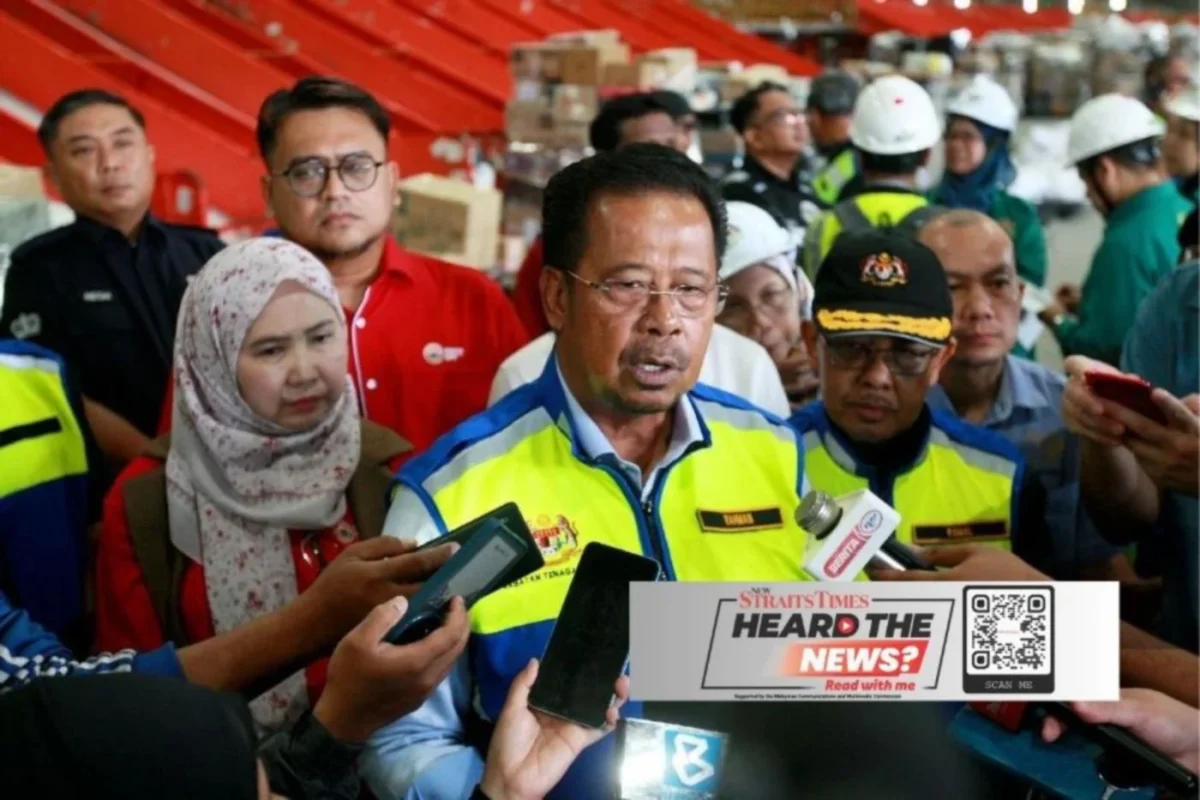 KLANG: The Human Resources Ministry has detected a worrying number of employers still refusing to register or make mandatory contributions to the Social Security Organisation (Perkeso) and Employees Provident Fund (EPF) for their workers. The ministry stressed that such actions violated employees’ rights and denied them basic protection. Deputy Human Resources Minister Datuk Seri Abdul […]
KLANG: The Human Resources Ministry has detected a worrying number of employers still refusing to register or make mandatory contributions to the Social Security Organisation (Perkeso) and Employees Provident Fund (EPF) for their workers. The ministry stressed that such actions violated employees’ rights and denied them basic protection. Deputy Human Resources Minister Datuk Seri Abdul […] - Nearly 500 labour law breach cases detected
 KLANG: Almost 500 investigation papers have been opened against employers for breaches of labour laws as of Nov 1, says Deputy Human Resources Minister Datuk Seri Abdul Rahman Mohamad. Among the most common labour law offences are employers’ failure to make the mandatory contributions to the Social Security Organisation (PERKESO) or the Employees Provident Fund […]
KLANG: Almost 500 investigation papers have been opened against employers for breaches of labour laws as of Nov 1, says Deputy Human Resources Minister Datuk Seri Abdul Rahman Mohamad. Among the most common labour law offences are employers’ failure to make the mandatory contributions to the Social Security Organisation (PERKESO) or the Employees Provident Fund […] - MOHR Won’t Tolerate Companies Preventing Workers From Forming Union
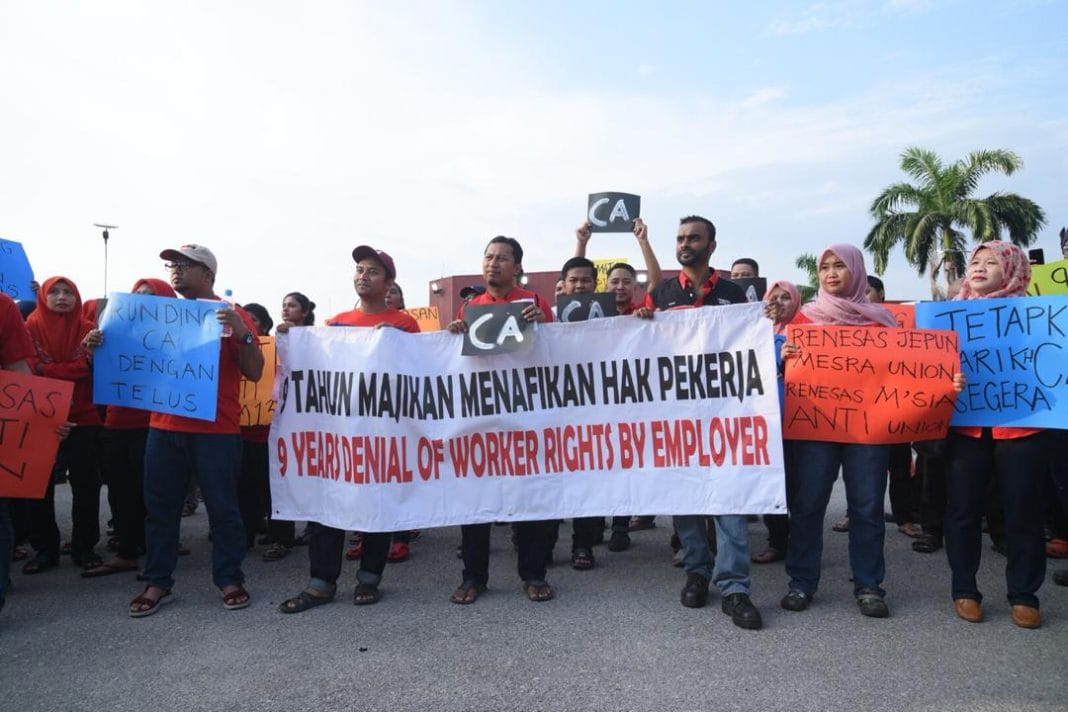 The Industrial Relations Department of the Human Resources Ministry (MOHR) has reaffirmed its commitment to safeguarding workers’ rights after a gathering and memorandum submission by several labour unions concerning alleged union-busting practices. The department emphasised that it respects the constitutional right to peaceful assembly and freedom of speech, while reiterating that workers’ rights to form […]
The Industrial Relations Department of the Human Resources Ministry (MOHR) has reaffirmed its commitment to safeguarding workers’ rights after a gathering and memorandum submission by several labour unions concerning alleged union-busting practices. The department emphasised that it respects the constitutional right to peaceful assembly and freedom of speech, while reiterating that workers’ rights to form […] - Court Orders Employer To Pay 93 Migrant Workers Outstanding Wages
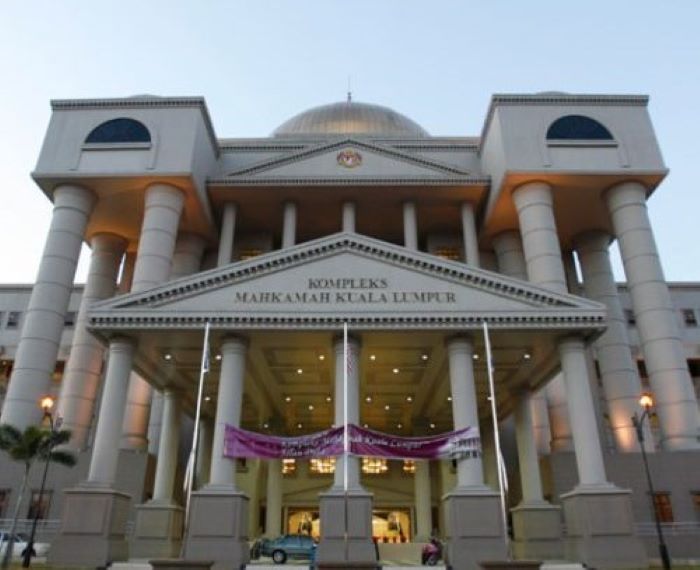 Human Resources Minister Steven Sim Chee Keong has welcomed the Shah Alam High Court’s decision to uphold an earlier ruling by the Labour Court, ordering an employer to pay outstanding wages to 93 migrant workers who were left without work upon arrival in Malaysia. The High Court on 31 October 2025 affirmed the Labour Court’s […]
Human Resources Minister Steven Sim Chee Keong has welcomed the Shah Alam High Court’s decision to uphold an earlier ruling by the Labour Court, ordering an employer to pay outstanding wages to 93 migrant workers who were left without work upon arrival in Malaysia. The High Court on 31 October 2025 affirmed the Labour Court’s […] - No tolerance for employers who withhold wages, says HR Minister
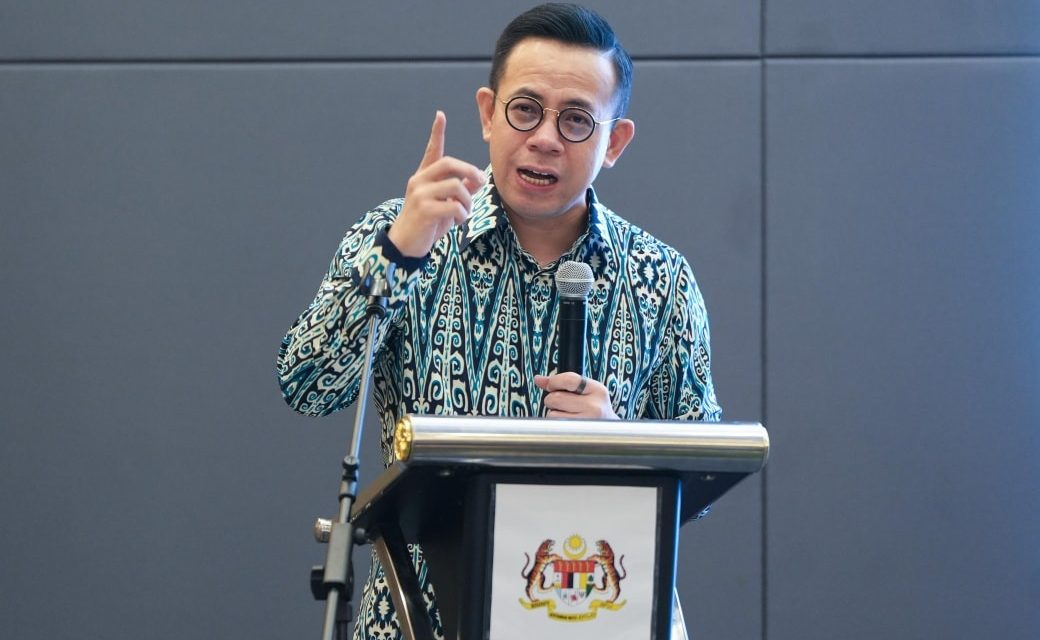 The Ministry of Human Resources (KESUMA) has urged all employers to take heed of the recent Shah Alam High Court ruling which upheld a decision in favour of 93 migrant workers in an unpaid wage case. Human Resources Minister Steven Sim Chee Keong said the Oct 31 decision sends a strong message that failure to […]
The Ministry of Human Resources (KESUMA) has urged all employers to take heed of the recent Shah Alam High Court ruling which upheld a decision in favour of 93 migrant workers in an unpaid wage case. Human Resources Minister Steven Sim Chee Keong said the Oct 31 decision sends a strong message that failure to […] - THE HEART WORK REVOLUTION
 TEN years after its inception, the Life at Work Awards (LAWA) 2025 marked not just a milestone but a movement that celebrates how Malaysia’s workplaces are evolving with compassion, flexibility and purpose. Hosted by Talent Corporation Malaysia Bhd (TalentCorp), the gala night honoured organisations leading the way in shaping a fairer, more progressive, human-centred world […]
TEN years after its inception, the Life at Work Awards (LAWA) 2025 marked not just a milestone but a movement that celebrates how Malaysia’s workplaces are evolving with compassion, flexibility and purpose. Hosted by Talent Corporation Malaysia Bhd (TalentCorp), the gala night honoured organisations leading the way in shaping a fairer, more progressive, human-centred world […] - Group wants clear framework, pilot projects before expanding EIS to gig workers
 PETALING JAYA: The Malaysian Industrial, Commercial and Service Employers Association (Micsea) has called on the government to set a clear policy framework and run pilot projects before expanding the Employment Insurance System (EIS) to gig and platform-based workers. The association said the plan, announced by human resources minister Steven Sim in the Dewan Rakyat on […]
PETALING JAYA: The Malaysian Industrial, Commercial and Service Employers Association (Micsea) has called on the government to set a clear policy framework and run pilot projects before expanding the Employment Insurance System (EIS) to gig and platform-based workers. The association said the plan, announced by human resources minister Steven Sim in the Dewan Rakyat on […] - Employer group seeks clarity on foreign worker pay rules after court ruling
 KUALA LUMPUR (Nov 3): The Malaysian Industrial Commercial & Service Employers Association (MICSEA) is calling on the Ministry of Human Resources (MOHR) to issue clear and structured guidelines on wage payment timelines for foreign workers, following a recent court ruling that employers must pay wages from the moment these workers arrive in Malaysia. The call […]
KUALA LUMPUR (Nov 3): The Malaysian Industrial Commercial & Service Employers Association (MICSEA) is calling on the Ministry of Human Resources (MOHR) to issue clear and structured guidelines on wage payment timelines for foreign workers, following a recent court ruling that employers must pay wages from the moment these workers arrive in Malaysia. The call […]
